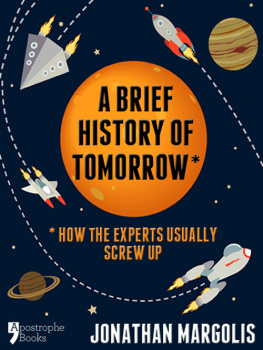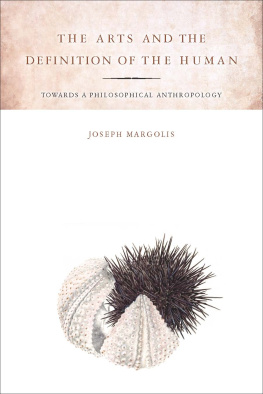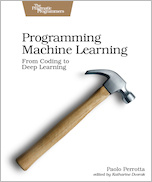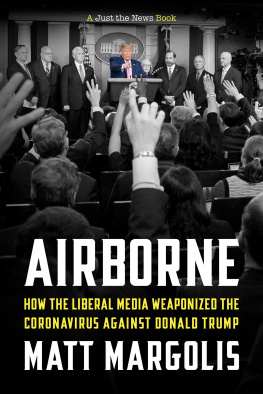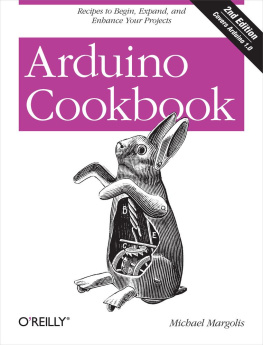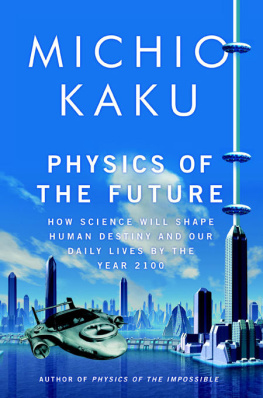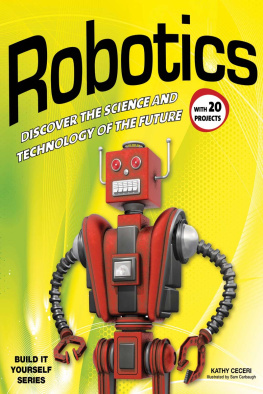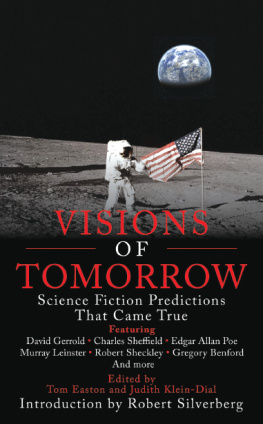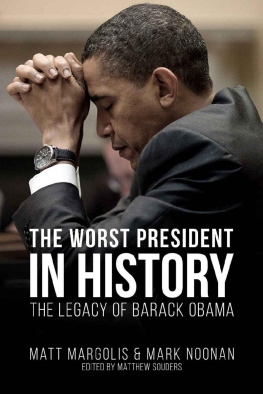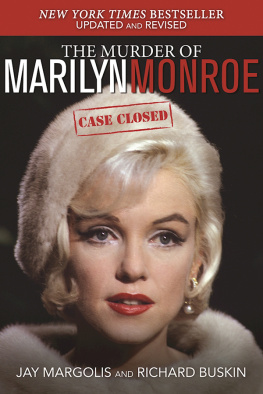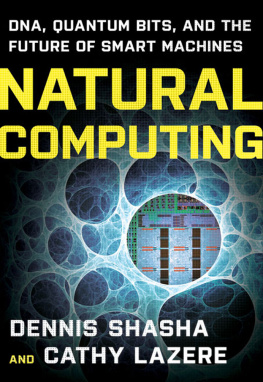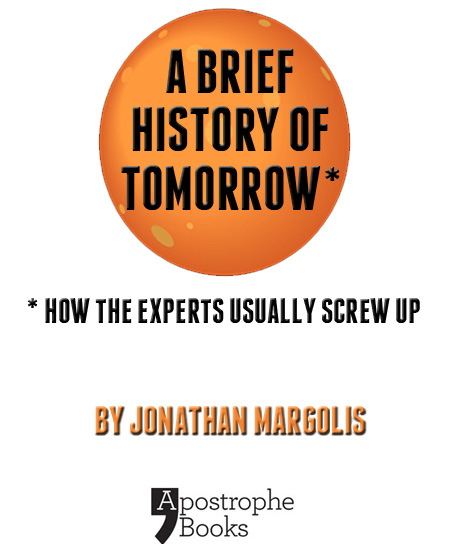
www.apostrophebooks.com
To the Future
Contents
PREFACE

The Stud
Look well to this day
For it is life
The very best of life
In its brief course lie all
The realities and truths of existence
The joy of growth
The splendour of action
The glory of power
For yesterday is but a memory
And tomorrow is only a vision
But today, if well lived, makes
Every yesterday a memory of happiness
And every tomorrow a vision of hope
Look well therefore to this day
(Sanskrit poem, anon.)
In a studiedly eccentric office just off Baker Street in Londons West End - the kind of brightly-coloured, post-minimalist work-place where no one has their own desk, but sets up their laptop wherever they like, where staff scribble their latest brilliant thoughts on wipe-clean wall boards, the office dividers are feng shui waterfalls and there are plates of jelly beans to graze on - a casually-attired group of young brains spends each day thinking about things to come.
There would be no point haying an Imaginarium, as this place is called by Orange, the British mobile phone company which has set it up right next to its chairmans office, to consider the boring old stuff everyday think tanks ponder on - trends in consumer spending and the like. No, Oranges Imaginarium is a place for more ambitious wheel-spinning on the future of technology and the way it might impact on homo sapiens deep future, far beyond 2001.
Here, for example, is a picture the Imaginarium has painted of the mobile phone some time from now. Its an era when the very concept of making a phone call will have become laughable. Telecommunications will be integrated into our bodies. What used to be simply your mobile phone company, but is now more of a full-time, electronic personal assistant service, will have equipped subscribers with The Stud, a tiny device that looks like a small studded earring, but is actually a twenty-four-hour all-purpose link to the rest of the world, just like the one Lieutenant Uhura wore in Star Trek.
The Stud will be audible in your ear in a voice and personality of your choosing. It will wake you in the morning, softly calling your name. As you shower - the stud having set the water temperature just so and remotely switched on the coffee maker in the kitchen - it will give a rundown on your schedule, the weather, news items which might interest you, any e-mails or voice messages it has received overnight and whether it would be advisable to drive to the office or take the train today.
On the way to work, it will set up multi-national conference calls, in foreign languages if necessary, translating your words into whatever, and whatever back into your own language. During the day, it will keep tabs on your state of health as well as your cars and that of your finances, guide you if you get lost, tell you where the nearest parking space is, give position and status updates on your children and quietly shop around for the latest grocery bargains which it knows you need.
Naturally, it will connect you at all times to a vastly improved internet. Database information such as sales statistics, spreadsheets, memoranda, and tracking of shipments, or research information such as the GNP of Greece or the projected population increases and purchasing habits of Brazilians, are just a whisper away. Oh, and when you want to make a call to a specific person, The Stud will be enabled for 3-D holographic imaging, meaning you will be able to speak to colleagues, friends and family anywhere in the world, as they appear to be sitting right in front of you as a hologram.
As you see, Oranges imagineers deal in pretty wacky futuristic stuff, not that different from science fiction, or from the American cartoon series Futurama, about a pizza delivery boy accidentally frozen while delivering to a cryogenics lab on New Years Eve 1999 and not thawed out until 3000, when he emerges into a world of flying cars, Stop n Drop suicide booths and coin-operated robot hookers.
One small point, however. The Stud is not a scenario for the twenty-fifth or the thirtieth century. It is a real project Orange are working on. They believe it could be available soon.
What is more, aspects of The Stud project may already be a little out of date. The cybernetics guru Professor Kevin Warwick of Reading University in England is planning personally to test a human telepathy chip. He already has one chip embedded in his body which opens doors as he glides around his department and enables his staff to track him. Soon he will have a half-inch-long device implanted in his arm and wired to a nerve to transmit thought and feeling wordlessly to another, similarly kitted-out human being.
Suddenly, one of the objections to Oranges Stud - that it will turn us into a troop of demented chimpanzees chattering away day and night to an apparently invisible friend - diminishes. Imagine the difference if we only had to think to speak to our virtual assistant.
And at the same time, the greatest difficulty with speculating on the future becomes abundantly clear - the increasing speed at which the future is unveiling itself. The famous prediction of computer chip manufacturer Intels Gordon Moore that the speed and complexity of computers will double every eighteen months, and the machines thus become over a hundred times faster every decade, is turning out to be true. And thats not all, there is also every sign that not only is the rate of discovery accelerating, but that the acceleration rate itself accelerates - with dizzying consequences for humankind.
Think, for example, about this book you are holding in your hands. Now, we have heard the death of print predicted unceasingly over the past few decades. Sony have been developing CD-based electronic book machines since the 1980s without setting off much desire on the part of the public to own one. Instead, we got Amazon.com and a boom in book buying.
Yet, according to Daniel Okrent, Editor-at-Large at TIME magazine and a former Editor of New Media at the company, print really is fast approaching the end of its existence. In twenty, or at the outside, forty years, he believes, printed pages will be as quaint as the horse and carriage. In a speech to the Journalism School at Columbia University in 1999, he gave a lucid description of the future of the printed word.
Imagine this, Okrent said, and if you find it hard to imagine, trust me: Ive seen it already, in the development office of a well-established Japanese computer electronics company. Imagine a tablet, maybe half an inch thick, shaped when held one way like an open hook or magazine, when turned sideways much like a single page of a newspaper. It weighs six ounces. Its somewhat flexible, which makes it easy to transport. (The truly flexible one, which youll be able to roll up and put in your pocket, is still a couple of years away, so this one will have to do.) Its screen, utterly glare-free, neither flickers nor fades nor grows dull. To move beyond the first screen in whatever it is that youre reading, you run your finger across the top of the tablet like this - a physical metaphor for the turning of the page.
You are sitting on a beach on a Saturday afternoon with this little wonder, and youre reading this weeks TIME magazine. Then you decide youd like something a little more, oh, entertaining. You press a series of buttons here, and a cellular hookup to a satellite-connected database instantaneously delivers you Evelyn Waughs Scoop. And when youve had enough of that - click, click - you move on, to the football news, or the office memoranda you didnt finish reading on Friday afternoon, or whatever it is that you want. Click, click again: each download, coming to you at dazzling speeds, and a central rights-clearance computer charges your account, much like a telephone account, for what youve read or listened to. The satellite operator keeps a small portion of the income, and the rest goes to the publisher - that is, to the agency that either created the material you are reading, or that represents the interests of those who created it. Or imagine this: another message comes to you, from - lets say Coca-Cola. Its an advertising message, and you have been paid to read it. You have been targeted by Coca-Cola, the marketers from that company have found you on the beach, and for the privilege of getting their message in front of you they have paid the satellite operator a carriage fee. The satellite operator, wanting to guarantee the advertising agency that the impression has been made, credits your master account a few cents. For reading the one-minute message from Coca-Cola, you get the first five minutes of tomorrows electronic newspaper for free. Everyones happy.
Next page
